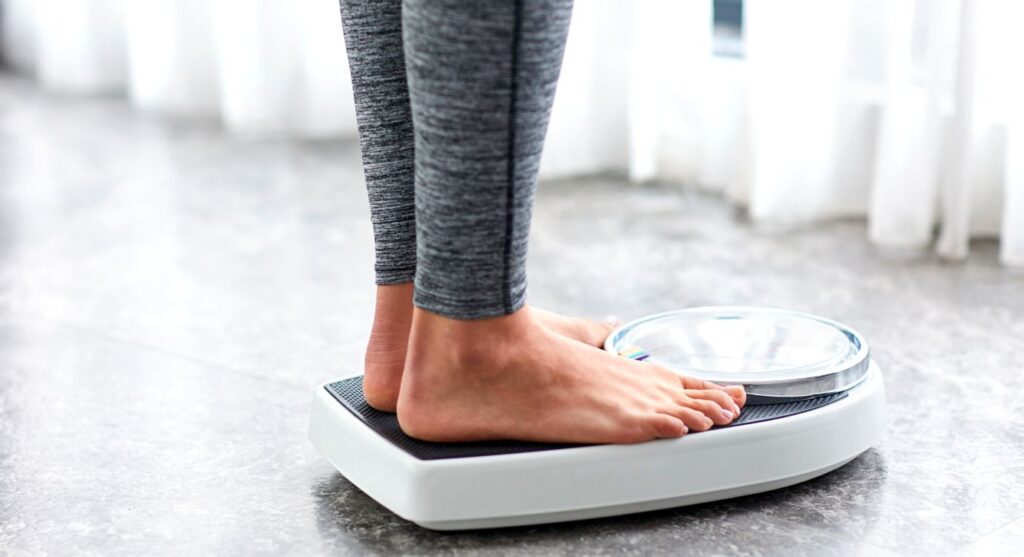So, you’ve bought your first magnesium supplement.
Whether you’ve opted for magnesium powder, a transdermal spray, or even a capsule, you’re probably looking to discover the same crucial piece of information: just how long does it take magnesium to work?
As with any supplement, if you’re taking magnesium to combat a symptom, ease a health condition, or correct a deficiency, you’re likely eager for this crucial mineral to begin doing its thing.
This guide will cover the following:
- How long magnesium takes to work for different conditions and symptoms?
- Can you tell when magnesium is working?
- Which magnesium works the quickest?
- Tips for making your magnesium supplement work faster.
Let’s take a look.
In this guide:
What happens when you start taking magnesium?
What does your body do when you start taking magnesium?
For starters, if you are deficient in the mineral and begin taking the supplement, your body will be grateful!
Within around 24 hours of taking a magnesium supplement, most people will have excreted approximately 70% of that magnesium. Then your body will begin using the remaining magnesium in the areas it is most needed.
If you have a severe deficiency, your body may try to hold on to a little more of the mineral. However, magnesium doses slowly build up in the system – which is how we manage to correct a deficiency.
Read more: How long does magnesium stay in your body?
How long does it take magnesium to work?
So, does magnesium work right away?
Magnesium can begin to take effect after around a week of consistent supplementation.
There’s no absolute measure for this – the timeframe it takes for magnesium to work depends on a number of factors – including the reason you are taking it.
Let’s look at some research around different conditions or symptoms which may benefit from magnesium and the time it took participants to experience that improvement.
How long for magnesium to work for sleep?
One of the key reasons people take magnesium supplements is to improve sleep. Magnesium may help with everything from sleep quality and duration, insomnia, restless legs syndrome and age-related sleep changes.
One study of older adults with insomnia found that magnesium supplementation at a dose of 500 milligrams daily for eight weeks helped them fall asleep faster and stay asleep longer. It also reduced nighttime awakenings and helped increase participants’ melatonin levels.
FYI – for those using magnesium to improve sleep – we’ve got a great Magnesium Sleep Powder at Evopure!
Read more: Magnesium for sleep


How long for magnesium to work for anxiety?
There’s an evident relationship between magnesium and anxiety. Research shows anxiety related to exam conditions – known as text anxiety – increases urinary magnesium excretion, resulting in a reduction of magnesium levels.
Studies have shown that magnesium supplements can positively affect anxiety within a relatively fast amount of time.
One study review shows improvements in the first three weeks of magnesium supplementation, with most studies noting improvements within six weeks of consistent supplementation.
How long does it take for magnesium to to work for muscle pain?
What about magnesium for muscle pain? How quickly can magnesium improve muscle pain?
One study examined the effects of magnesium supplementation on muscle soreness and performance. Researchers concluded that magnesium supplements reduced muscle soreness and improved perceived recovery. This impact was observed within ten days.


How long does it take for magnesium to work for restless legs?
Some research suggests that some cases of restless leg syndrome may be caused by a magnesium deficiency.
Studies also support the notion that when magnesium deficiency is a cause of RLS, patients respond well to magnesium supplementation.
One study noted improvements in patients after 4-6 weeks of consistent magnesium supplementation.
How long does it take for magnesium to work for constipation?
Magnesium ingested for constipation can begin to work incredibly quickly. If you are taking magnesium citrate for constipation, it can take between 1 and 4 hours for laxative effects to begin.
Read more: Magnesium for bloating
How long does it take for magnesium to work for depression?
The link between magnesium and depression has long been posited: the first study on the benefit of giving magnesium to patients with agitated depression was published an entire century ago!
Research so far indicates magnesium can help improve depressive symptoms as quickly as within two weeks of taking the first dose.
How long do different types of magnesium take to work?
Various types of magnesium have different absorption rates, so the timeline to notice results differ.
Here is the absorption timeline of different types of magnesium:
- Magnesium citrate
Magnesium citrate has a good absorption rate, and the effects of it can be felt relatively quickly. If taken to support constipation, results can be seen within 30 minutes to six hours. - Magnesium glycinate
The absorption of magnesium glycinate is enhanced by the amino acid, glycine, meaning the body uses more of the mineral, and results can be seen within a few days. - Magnesium L-threonate
Magnesium threonate is gaining popularity due to its ability to cross the blood-brain barrier. However, it takes at least six weeks to experience these brain-boosting effects. - Magnesium sulfate
Known as Epsom Salt, magnesium sulfate is commonly used in the bath and absorbed through the skin, where it may offer relaxation benefits within a few hours. If taken orally, magnesium sulfate can help relieve constipation within 30 minutes to 6 hours.
How long do different magnesium usage methods take to work?
Now that we know how long does it take magnesium to work for different conditions, let’s explore how best to use it.
Which method should I choose for fast results, and which should I choose for long-term sustainable results?
Here’s how long it takes for each form of supplementation to take effect.
Capsules and tablets
Generally, magnesium taken in pill form will take a week to show any effect, although it can be longer. If you’re looking to treat a deficiency or improve a condition, taking magnesium capsules or tablets over at least four weeks is the best way to guarantee results.
It also depends on the form of magnesium. Forms of magnesium such as citrate and glycinate have the best absorption rate and will therefore work faster than other types of magnesium.
Powder
Magnesium powder can begin to work within a week of consistent supplementation.
However, it depends on the condition or symptom you are taking magnesium powder to correct or improve. If you are trying to correct a severe deficiency, it will take longer to see noticeable improvements – but it doesn’t mean it isn’t working!
Oil
Oil, applied topically, will generally begin to work on localised areas quickly, as they are absorbed rapidly through the skin.
Magnesium oils can start to do their magic in the system within around an hour of application. Consistent application of magnesium oil can start to have a positive effect within a week of application.
Transdermal sprays
Transdermal magnesium sprays. These are fast acting, as the magnesium is absorbed through the skin, bypassing the digestive system.
To achieve an optimal magnesium intake, it should be taken consistently and regularly to ensure your levels are kept topped up.
In a study published by the European Journal of Nutraceutical Research to determine the impact of transdermal magnesium treatment on serum levels and calcium-to-magnesium ratios, researchers found an increase of nearly 60% on average, in the magnesium levels of 89% of participants, after twelve weeks of treatment.


How do I know if magnesium is working?
If you have a magnesium deficiency, you may gradually notice improved sleep, less fatigue, or less weakness as your body’s magnesium levels build. You can use this crucial mineral to carry out all the enzymatic processes it is used for.
However, you’re unlikely to jump out of bed one day and feel like a shiny new person.
Don’t expect the earth, but also ensure you’re keeping track of your symptoms and how you are feeling. Journaling or similar practices can help you notice small changes, which should build up over weeks and months.
People report feeling the anti-anxiety effect within one day to a few weeks.
Healthy levels of magnesium promote sound sleep. Men and women with a magnesium deficiency report tossing, turning, and regularly waking throughout the night. Less fatigue, less weakness.
But don’t expect an overnight miracle!
Tips to make magnesium work faster
Can you do anything to improve the speed with which magnesium starts taking effect? Magnesium supplements may interact with other supplements or minerals.
Taking too much vitamin D may deplete your magnesium levels, as can taking too much calcium or zinc.
To ensure you get the most out of your magnesium supplement and feel the impact as quickly as possible, you may want to reduce calcium-rich foods before or after eating foods heavy in magnesium and avoid high doses of zinc or vitamin D supplements.
But we’d only advise this if you have a severe magnesium deficiency!!
Always speak with a medical professional about supplementing magnesium. They will be best placed to advise you about dosage time and other supplements.
It’s vital to seek professional help if you take prescribed medications, as magnesium may interact with these.


The verdict
Magnesium isn’t an overnight cure. Unfortunately, you cannot take one magnesium capsule and suddenly feel a marked difference.
However, studies show participants who supplemented magnesium for between 6 weeks to 3 months for a variety of conditions noticed a significant difference, from reduced leg cramps to improved sleep to boosted mood and reduced anxiety.
Magnesium can and might get to work a lot quicker than this – some studies showed participants noticed differences after even three days. But to correct a deficiency and improve your health long-term, allow 8-12 weeks for the full impact of magnesium supplementation to kick in.
















































































































































